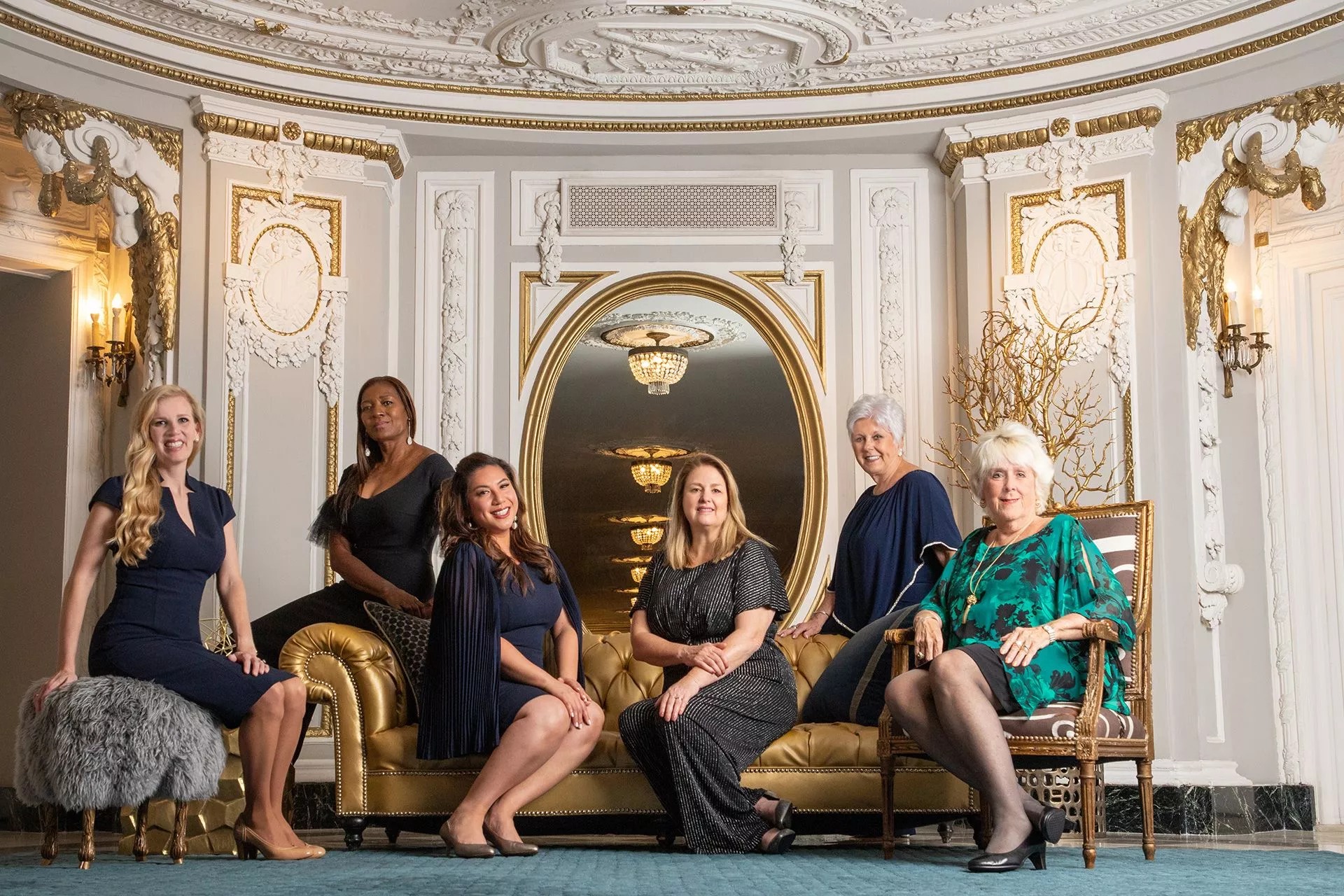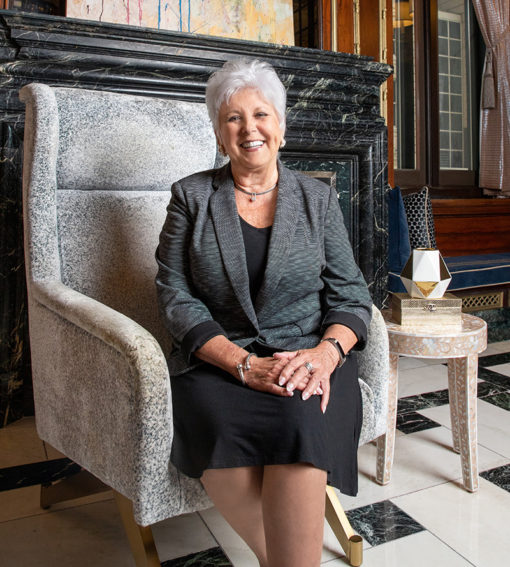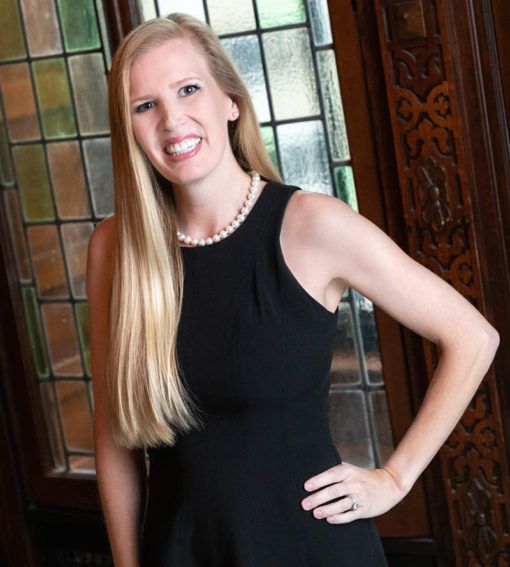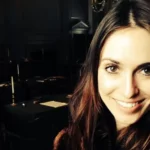Shot on location at: The Blackstone 636 South Michigan Avenue Chicago theblackstonehotel.com
WOMEN ON THE VERGE: (From left) Dr. Tesa Jolly, Dr. Deborah V. George, Dr. Charmaine G. Ng, Cathy J. Grinham, Linda Miles and Dr. Carole A. Palmer
ABOUT LUCY HOBBS
BORN IN MARCH 1833 in upstate New York, Lucy Hobbs intended to pursue a career in dentistry from an early age—a thing that simply wasn’t done in nineteenth-
century America. Shunted aside at nearly every turn, she persevered, in 1866 becoming the first American woman to earn a degree in dentistry, which she practiced until her death in October 1910.In 2013, Benco Dental inaugurated the Lucy Hobbs Project in her honor, celebrating the achievements of women in dentistry and empowering them to drive further change. In this, the Project’s seventh year, that mission is more critical than ever, and Incisal Edge is proud each winter to recognize six women who best exemplify the tireless, pioneering spirit of Lucy Hobbs.
NEARLY ONE HUNDRED years ago—on August 26, 1920—the Nineteenth Amendment to the U.S. Constitution was officially adopted, giving women the right to vote. The movement for female suffrage had hit its apogee.
For this year’s Lucy Hobbs Awards, we’re doing our part to mark the spirit of that proud moment. The six remarkable women we honor this year embody it. In the coming decades, a majority of dentists in America will be women. We’ve asked this year’s honorees to share their thoughts about what that might portend, and we’ve also sought the insights of a prominent bioethicist and medical futurist.
Lucy Hobbs died in 1910, missing the right to vote by a decade. A hundred years later, women influence dentistry in ways unimaginable in Hobbs’s time. May their work continue—and may Hobbs’s influence be only strengthened.
INDUSTRY ICON
LINDA MILES
AGE: 76
CITY: ESTERO, FLORIDA
AFFILIATIONS: Linda Miles and Associates; the Speaking Consulting Network
SPECIALTY: Consulting
EDUCATION: No HIGHER education; she got her first professional job at age 17
FOR THE FIRST TIME in the history of the Lucy Hobbs Awards, the Industry Icon—first among equals, shall we say—goes to a non-DDS, non-DMD industry professional. Why? Well, Linda Miles has spent nearly 50 years in dentistry; she just hasn’t spent them chairside. It’s no overstatement, though, to say she has utterly revolutionized the front office.
An accomplished consultant, speaker and author of works on dental-practice management and team development, Miles has influenced the business and balance sheet of more than 800
U.S. dental offices with her simple, straightforward message: “Your team makes or breaks your practice. If you don’t have an excited, caring and invested team, you won’t be all that successful.”
Miles began her career when she was 17, working for $1 an hour as an assistant at a dentist’s office in her native West Virginia. After a few years, she began managing the front office, a move that would come to define her career. Between overseeing accounts payable and motivating her teammates, Miles says she realized that while “there were thousands of dentists who knew how to fix teeth, they didn’t know how to hire the people they needed to make their practice run.” In the late 1970s, she began hosting seminars on the topic—and what she thought of as a “part-time job” turned into far more.
From 1987 to 1999—a period Miles refers to as her “heyday”—Linda Miles and Associates was one of the country’s premier dental front-office consultancies. Miles and her team of around 10 spent about two weeks a month on the road at clients’ offices and conducting a variety of speaking engagements and lively seminars. (In 1997, she founded a successful education platform, the Speaking Consulting Network, which provided public-speaking training.)
In 2007, Miles sold her consulting business; she did the same with the speaking network a few years later. Today she spends her time working with Oral Cancer Cause, a Florida nonprofit she co-founded that works to raise awareness of (and funding for) early-stage head and neck cancers.
Even now, as she tries “to retire for the third time,” she says, she’s grateful to receive emails and Facebook messages from doctors and dental teams thanking her for her help over the years. “Dentistry is truly for me like a sundae, and this [Industry Icon] award was the cherry on top,” she adds. “I just hope everybody has the opportunity to enjoy their career as much as I’ve enjoyed mine.”
WHAT THE FUTURE HOLDS
I think the marketplace is choosing female dentists for more reasons. Women are going to rule this profession—the public is demanding the shift toward it.”
HUMANITARIAN AWARD
DR. TESA JOLLY
AGE: 37
CITY: PULASKI, TENNESSEE
PRACTICE: Dr. Tesa Family Dentistry
SPECIALTY: Family Dentistry
EDUCATION: B.S., University of Tennessee; DDS, University of Tennessee Health Science Center
INCISAL EDGE HAS frequently lauded humanitarian doctors who travel to far-flung destinations around
the globe. This year, though, we’re spotlighting a woman who has done that, yes—but who has also made
a major difference in the oral health of her own rural Tennessee hometown.
Dr. Tesa Jolly runs an eponymous family practice in Pulaski, Tennessee, south of Nashville, where she has organized a “free dental day” for residents of Giles County since 2008. What began as a handful of volunteers treating perhaps 100 people has grown to as many as 200 treating 500 patients with an array of maladies.
Some patients Dr. Jolly and her team see come from the ranks of the Volunteer State’s Amish, a culturally isolated group whose trust she says she’s honored to have earned. “I’ve been paid in cash, in quilts, in produce and in baskets,” she marvels. “Sometimes there’s a horse and buggy tied to my office signpost.”
She has also traveled to China three times with the nonprofit organization Hope Smiles
to provide free care to workers at orphanages, fulfilling a lifelong dream to do international mission work. The trips have taken on more than just religious and professional significance; Dr. Jolly has adopted two children from orphanages there.
“Working on the dental challenges of the rural Chinese and the Amish has provided me
with interesting and atypical clinical experiences,” she says. “It has heightened my empathy and awareness of many puzzling dental problems,” encouraging her to be a “lifelong learner, always improving my expertise.”
In part, that means operating a forward-thinking practice that’s emblematic of the elusive work-life balance—the kind of world Lucy Hobbs sought to bring about, in other words. “In my
practice—all women—increases in family and medical leave, maternity leave and an emphasis on family life in general are examples of changes I’ve made since I purchased the practice from
a male dentist 10 years ago,” Dr. Jolly says.
Her patient relations, meanwhile, could scarcely be better: She intends to take her Lucy Hobbs Humanitarian Award home to Giles County, she says, “and count it as an accolade earned with the help of my whole town.”
WHAT THE FUTURE HOLDS
The field of dentistry will maintain the same high standards and professionalism, but the complexion of the work environment will be even more family-friendly.”
CLINICAL EXPERTISE
DR. DEBORAH V. GEORGE
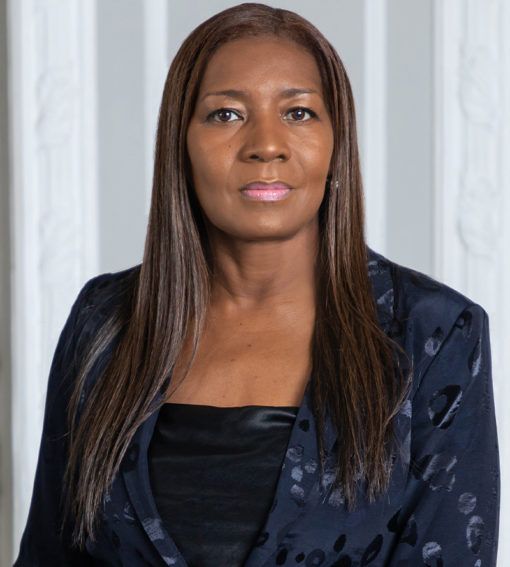
CITY: MIAMI, FLORIDA
PRACTICE Jessie Trice Community Health Center
SPECIALTY: General dentistry
EDUCATION: B.S. in nursing, Hampton Institute; DDS, Georgetown University School of Dentistry
THE LATE MAYA ANGELOU was fond of an aphorism that has become one of Dr. Deborah V. George’s favorite sentiments: “I’ve learned that people will forget what you said, people will forget what you did, but people will never forget how you made them feel.”
As executive vice president and chief dental officer at Jessie Trice Community Health Center in Miami, Dr. George has dedicated her career to underserved populations, leaving an indelible imprint on thousands of patients through her impeccable clinical expertise.
She began her professional life in medicine as a triage nurse at George Washington University’s teaching hospital in the nation’s capital and at Jackson Memorial Hospital in Miami. In both places, she says, she encountered many children who complained of toothaches caused by untreated decay. Exposure to oral-health disparities and other inequities made her want to do something to address them. Noticing how few African-American women were health-care professionals only reaffirmed her commitment, she says, to “serve and help people live healthier lives.
“In my opinion, dentists are clinical experts, community leaders, patient advocates and educators,” she adds. “I chose to work in underserved communities and dedicate my career to providing access to quality care. I’m committed to responding to the needs of the underserved community, and to ensuring individuals have access to high-quality dental care and education.”
Not just better oral-health education among patients, that is, but also formal schooling. The ongoing growth in female representation among the dental ranks, she’s certain, “will lead to an increase in women scientists and inventors of advanced dental technologies.”
At Jessie Trice, Dr. George has created an Advanced Education in General Dentistry program, boosted the center’s number of practices from one to seven and established a dental office within a pediatric medical practice. She has likewise built her team steadily; it now includes an endodontist and two periodontists. She has also trained her staff to screen patients for HIV and diabetes.
“At the end of this career, I hope to be remembered as what some have said about Lucy Hobbs,” Dr. George says. “ ‘She did much good in a quiet, unobtrusive manner.’ ”
WHAT THE FUTURE HOLDS
In the near future, I anticipate more female dentists participating in organized dentistry, as well as in leadership roles at the local, state and national level.”
INNOVATOR AWARD
CATHY J. GRINHAM
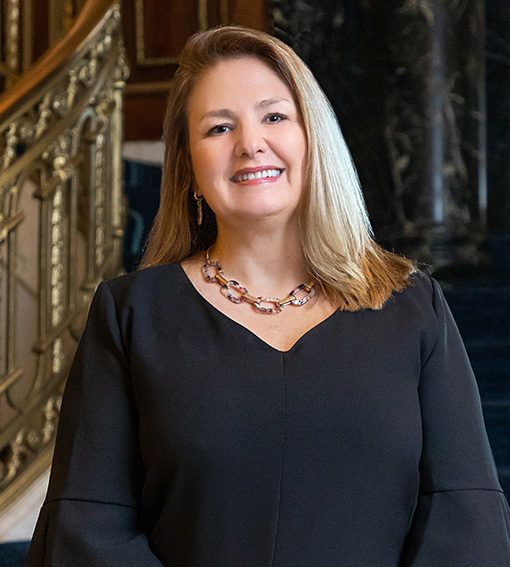
CITY: Assonet, Massachusetts
PRACTICE: Visiting Dental Associates of Massachusetts
SPECIALTY: Dental hygiene
EDUCATION: BRISTOL COMMUNITY COLLEGE, FALL RIVER, MASSACHUSETTS
PUBLIC-HEALTH HYGIENIST Cathy J. Grinham is on a mission to make dentistry more accessible. That long-held goal spurred her to become one of Massachusetts’ first dental hygienists licensed to provide preventive oral care to patients outside the dental office, and drove her to invent the Portable Panoramic Imaging System—a worthy reason for the Innovator Award by itself.
Grinham works primarily in nursing homes, treating patients who often suffer from mobility problems and dementia. Early on, she realized that many of them had great difficulty holding in their mouth the tile required for taking intraoral radiographs. Patients were scared they’d choke, they had trouble holding a position for any length of time, and transporting them to a practice was so costly and traumatic it was out of the question.
She therefore needed a portable panoramic unit—an X-ray device she could fit a wheelchair underneath—and so set out to make her own. With help from her husband and an engineer friend, Grinham devised an adjustable mobile X-ray device that takes pano, posterior and anterior close-ups. Using a motorized cart to transport the device, which is too bulky to move by hand, Grinham can take reliable images of a patient’s entire mouth without leaving his or her residence.
“I’m able to get a whole wheelchair under the panoramic X-ray and take high-def images in about 10 seconds,” Grinham says, adding that the visuals help diagnose decay and abscesses, frequent problems for her patients, many of whom have difficulty maintaining good oral practices. “It’s such a great public-health advancement, because otherwise they go without care.”
Grinham and her partners at Visiting Dental Associates are already using the Portable Pano at the eight Massachusetts nursing homes in which they operate, and Grinham is likewise exploring its possible use for homebound patients such as quadriplegics and those suffering from severe mental-health problems.
The 55-year-old mother of three says she regards her innovation as a way to make dentistry a more flexible profession. “The typical model is that people come to you,” she says. “But medicine isn’t that way anymore. You can get a flu shot at CVS. Medicine has stepped up to the call of public health”—but dentistry not so much. “I want to push that forward a little bit at a time.”
WHAT THE FUTURE HOLDS
I hope that a female-led dental profession will make a more compassionate turn toward underserved populations, and withdraw current barriers to care.”
MENTOR AWARD
DR. CAROLE A. PALMER
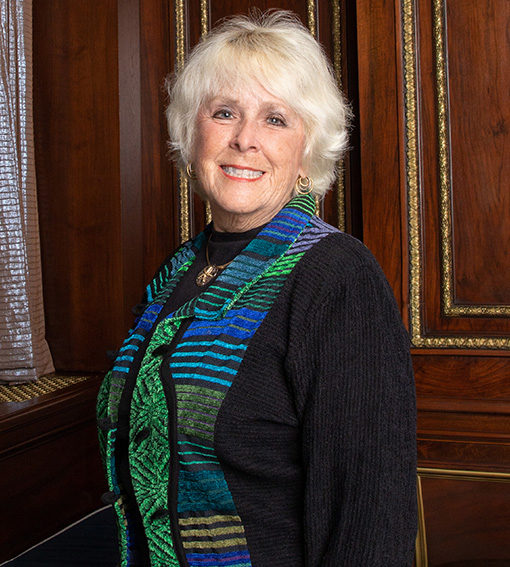
CITY: BOSTON, MASSACHUSETTS
PRACTICE: Tufts University School of Dental Medicine
SPECIALTY: Nutritional health
EDUCATION: B.S. in nutrition, Simmons College; M.Ed. in nutrition education, Tufts University; Ed.D. in educational policy, planning and administration, Boston University
THIS YEAR’S PREEMINENT MENTOR, somewhat startlingly, says she began to consider herself a mentor only about two years ago. During her 50-year career on the faculty at Tufts University School of Dental Medicine, Dr. Carole A. Palmer was, she says, simply focused on her life’s work: teaching dental students to get comfortable providing their patients with appropriate nutrition advice and care.
As the head of Tufts Dental’s Division of Nutrition and Oral Health Promotion, she taught behavioral psychology and counseling techniques to improve students’ communication skills. (“People don’t want to do what you tell them to do,” she is fond of saying. “They want to do what’s important to them.”) She created a variety of presentations explaining the difference between nutritional science and applied nutrition. (The latter is about understanding how and why diet plays a role in dental caries and periodontal disease.) She worked to get nutrition incorporated across the school’s curriculum so it would become as basic to students as brushing and flossing.
Then, about two years prior to her retirement in June 2019, she started to receive emails like one from a student who took classes under her in the 1980s, who said her applied-nutrition lessons have become his most valuable tool at his dental practice. Or one from a former colleague who said Dr. Palmer was the primary reason she’d been able to rise to become dean of her dental school.
“They reminded me that none of this has to do with clinical dentistry. It has to do with life,” Dr. Palmer says. “You do the best you can. You fight your battles. You share the good, the bad and the ugly with your friends at work and you brainstorm together. All of these are pieces of mentoring.”
Dr. Palmer was involved in planning Tufts Dental’s inaugural formal mentoring program, aimed primarily at international students. More recently, she mentored several female faculty members through the American Dental Education Association. “I’ve been through everything they’re going through,” she observes, “and I use my counseling background to find out: What do they really want?”
Last June, when she attended her final year-end convocation at Tufts, students surprised her with two modest gifts: a button reading most likely to help interns think beyond dietetics
and, tucked into a spray of flowers, a sign reading most likely to empower and encourage interns to take on the world. “I thought, ‘Oh, my God,’ ” Dr. Palmer says. “I couldn’t be happier.”
WHAT THE FUTURE HOLDS
When you have more women in a profession, you have the potential for greater breadth of perspectives. In any field, the more diverse the people involved, the better the outcome.”
WOMAN TO WATCH
DR. CHARMAINE G. NG
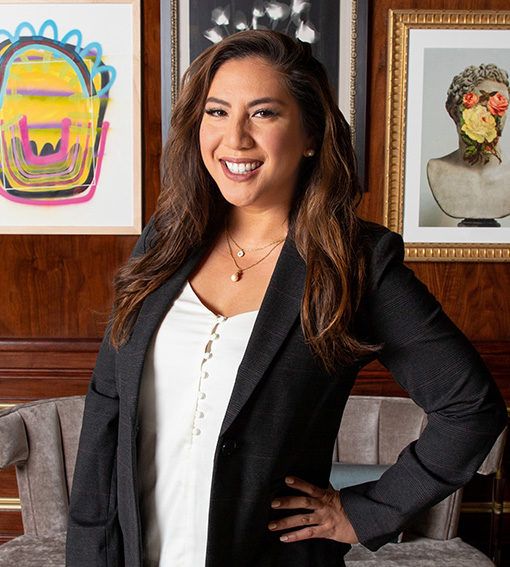
CITY: SAN FRANCISCO
PRACTICE: HealthRIGHT360
SPECIALTY: General dentistry
EDUCATION: B.S., University of California San Diego;
DMD, A.T. STILL UNIVERSITY’s Arizona School of Dentistry and Oral Health
A CALIFORNIA NATIVE who has spent the last decade treating the underserved in San Francisco, Dr. Charmaine G. Ng is quite obviously a professional on the rise. The dental director of HealthRIGHT360, a safety-net clinic in a city increasingly in need of one, Dr. Ng regards dentistry as a “gateway” to connect patients with other medical, addiction and behavioral-health specialists who work with her at the clinic.
“My heart is in public health,” she says. “People who are underserved, people who fall through the cracks of health care, this is who I treat. Dentistry has been a way for me to serve my community.”
Located where the San Francisco neighborhoods the Mission and Tenderloin—two relatively hardscrabble parts of the city—meet downtown, Dr. Ng’s team of nine doctors, assistants and hygienists treat the needy from across San Francisco. Their patients are often homeless, struggling with addiction, mental-health or behavioral troubles, or are children on Medi-Cal, the state’s Medicaid program.
Dr. Ng and her crew are covered to perform an array of services ranging from cleanings and crowns to fillings and extractions. What she really likes to focus on, though, is asking penetrating questions that can unmask a variety of patients’ other hidden needs—untreated diabetes, for example, or depression.
“If your tooth hurts and you’re in real pain, you’re going to go to a dentist,” Dr. Ng says. That same patient might already have put off seeing a doctor for other symptoms, though. When that person is in Dr. Ng’s chair, it’s her chance to get him or her needed help. Her team now screens every patient for substance-abuse risk by asking specific questions, and they’re working to incorporate similar tactics to screen for depression risk. If the patient then wishes to see the clinic’s addiction specialists or behavioral therapists, Dr. Ng
will connect them.
The medical integration can go the other way, too. Every patient treated at HealthRIGHT360 who is at high risk for diabetes is referred to Dr. Ng for periodontal screenings and, if necessary, intervention. “Dentistry is a gateway to the entire health-care system,” she says. “I hope that dentistry as a profession will change to become more integrated. My hope is to influence that and be part of that greater movement.”
WHAT THE FUTURE HOLDS
When you have more women in a profession, you have the potential for greater breadth of perspectives. In any field, the more diverse the people involved, the better the outcome.”



